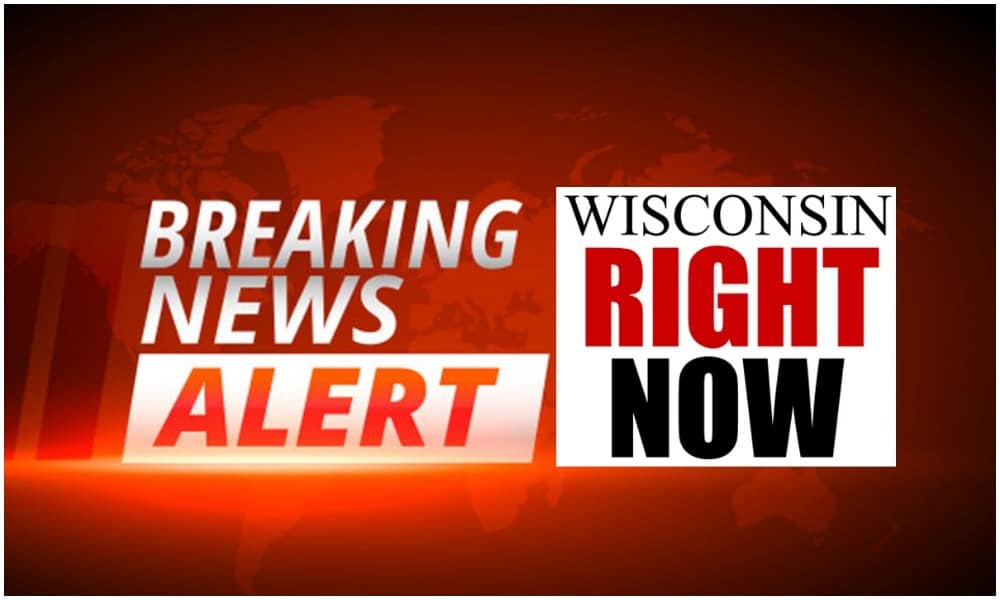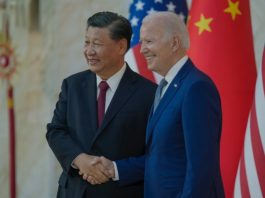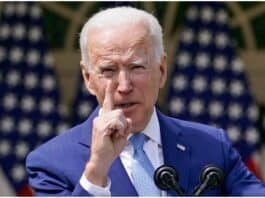(The Center Square) – Americans looking for a higher degree of civility in the final installment of the 2020 presidential election debate series between President Donald Trump and former Vice President Joe Biden probably slept a little easier on Thursday night.
Did American voters learn more about policy positions from either candidate? That’s still a matter for debate.
The Center Square’s Tennessee-based reporter, Vivian Jones, was credentialed for the event and covered the scene outside of the event center and the debate live from Belmont University on Thursday night.
Trump and Biden each spoke to coronavirus mitigation, immigration and the economy in language that had previously been shared in past debates, town halls or offered in prepared statements. On Thursday night, Biden backed a $15 minimum wage that Trump knocked aside by saying that small businesses forced to increase wages simply would hire fewer people and operate with fewer employees.
Not exactly earth-shattering stuff.
NBC’s Kristen Welker, hounded by allegations of bias ahead of Thursday night for the Welker family’s past connections to the Obama White House and to political contributions to Democrats, was lauded across social media and legacy media as the most effective and efficient moderator of the four presenting television commentators and correspondents. The bar wasn’t exactly set too terribly high by her predecessors. And, in full disclosure, Welker is distantly related to my wife (although they have not spoken in more than 10 years) and I do everything I can to avoid sociopolitical skirmishes where I eat and sleep most of the time.
Fox News anchor Chris Wallace drew wide criticism for interrupting Trump, lopsided questions that put Trump on the defensive and for lobbing softball questions Biden’s way in the first presidential debate. NBC’s Savannah Guthrie moderated the Trump town hall with the veracity of a prosecuting attorney in stark contrast to former Democrat advisor George Stephanopoulos’ tissue-soft conversation with Biden, which aired on ABC across virtually the same time slot.
Trump has broadly canvassed key states across the country since his recovery from COVID-19, and the Thursday debate offered little in new information about what the president might want to do in the coming four years if re-elected. He was more cordial, more civil and less demonstrative in Nashville. But Trump was still on the offensive when it appeared he grew impatient waiting for more challenging questions to be posed to Biden.
it was Trump who stepped in front of Welker and pressed Biden on his conflicting statements regarding the U.S. energy industry, specifically about fracking in the key swing state of Pennsylvania. Biden, who had been on record during the Democratic primary as saying he favored the elimination of fracking, stumbled through his initial attempt to answer the question Thursday night. Biden then expounded on his position, and said that his administration would transition the country away from fossil fuels en route to a zero-emission standard by 2025. He later said zero emissions would come to fruition by 2035.
Trump also took the lead in prompting Biden to speak to potential financial benefits that Biden and his family received from foreign entities as well as the ongoing FBI investigation into his son Hunter Biden’s laptop. The laptop story created controversy last week after both Twitter and Facebook algorithmically throttled down the New York Post’s original story about the discovery that a Delaware computer repair shop had earlier this year turned over a computer reportedly belonging to Hunter Biden to local authorities. Biden, responding to a direct question from Welker about the allegations, refused to answer it in detail regarding his family’s foreign business dealings.
“Nothing was unethical,” said Biden, who had been off the campaign trail in the five days preceding Thursday night’s debate.
Biden offered no other explanation of alleged familial business relationships with China (fees for introductions with Chinese business partners), Iraq (a brother’s construction deal), Russia (wire payment to his son from the wife of the mayor of Moscow) or Ukraine (his son’s involvement with natural gas provider Burisma).
* * * *
NATIONAL
Two recent reports detail how much Joe Biden’s tax plans will cost taxpayers if he is elected president. The Center Square reported that the National Tax Limitation Committee and National Tax Limitation Foundation concluded Biden’s plans would cost nearly $4 trillion in increased taxes over the next 10 years, which “would be the highest in American history – indeed, in world history.” A separate analysis by the nonprofit, nonpartisan, Washington, D.C.-based Tax Foundation found that Biden’s tax plan would reduce the economy’s size by 1.47 percent, reduce wages by a little over 1 percent, and result in 518,000 full-time job losses.
A separate report, authored by the nonprofit Employment Policies Institute, found that implementation of a nationwide $15 minimum wage would result in the loss of more than 2 million jobs. In 2019, the U.S. House of Representatives passed the Raise the Wage Act that, if enacted, would create an incremental schedule to increase the federal minimum wage to $15 an hour by 2027. The bill also would increase the federal tipped wage incrementally to reach $12.60 by 2027, an increase of 491 percent. Both bills were blocked by the Republican-controlled Senate. Depending on election results, they could be revived in 2021.
PENNSYLVANIAAfter he ran for governor in 2014 and 2018 as an opponent of legalizing recreational marijuana, Pennsylvania Gov. Tom Wolf changed his stance on the issue – now that he faces term limits and won’t have to go before voters again. Tracking his history on the issue involves cabinet officials who were staunch advocates for legalization and tangential family links, but Wolf’s office continues to insist that the governor has no personal stake in recreational marijuana legalization.NEW JERSEYSmall businesses in the Garden State may be finding it more difficult to weather both the coronavirus pandemic and their state’s restrictions than their peers in other states, according to the head of the New Jersey chapter of the National Federation of Independent Business. “I love seeing, in the national survey, that improvements are happening across the country,” Eileen Kean told The Center Square. “But New Jersey is a different situation. We still have a lack of consumer confidence, in terms of people going out in stores.”OHIO
A recent report from the Arizona-based Goldwater Institute found the city of Columbus paid more tax dollars for city workers performing union work, rather than government work, than all but one other city in the nation.
In statewide news, Ohio’s unemployment rate fell from August to September, and the state added nearly 40,000 new private-sector jobs. But, in reality, according to an independent think tank, the picture isn’t as rosy as the numbers.
ILLINOIS
In Illinois, where voters face a constitutional amendment question seeking to change the state’s flat income tax with a scaling progressive tax in which higher earners pay higher rates – if Biden wins and the amendment passes – the state’s highest earners could be paying nearly 60% in combined federal and state marginal taxes.
With falling temperatures arriving this autumn, Illinois’ largest restaurant association said it can no longer support Gov. J.B. Pritzker’s COVID-19 mitigation plan that prohibits dine-in service. Pritzker has threatened to take liquor licenses away from small businesses that don’t comply. The Illinois Restaurant Association said the new restrictions could force 20% of bars and restaurants to close and result in an elimination of 120,000 jobs.
Taxing retirement income has become a political talking point in the argument over the progressive tax ballot initiative. A financial industry advocate warned about the hit to Illinois residents’ 401(k) plans that would stem from a different proposal. Taxing financial transactions has found its way back into the conversation in a number of cities and states as a way to shore up budgets battered by COVID-19 shutdowns. While the amounts are different, the premise of placing a fee on each trade conducted in a city or state remains the same.
MICHIGANOwosso, Mich., barber Karl Manke, 77, garnered national attention and local rallies of support when he reopened his shop in May, against a since nullified executive order from Gov. Gretchen Whitmer – an action that sparked multiple law enforcement citations as well as administrative actions brought against him by state Attorney General Dana Nessel. This week, Manke learned all criminal charges were dropped against him. However, Nessel has yet to rescind her office’s administrative penalties against the barber and author, which may include revoking his state license. At least 30 other Michigan-based businesses are facing state department-issued fines that the government claims remain valid. However, some other businesses question if the citations should be thrown out. On Oct. 2, the Michigan Supreme Court ruled against Whitmer’s attempt to extend her authority and thereby voided all COVID-19 executive orders issued by the governor since April 30. That Michigan Supreme Court ruling invalidated thousands of COVID-19 fines and criminal charges for violations of her executive orders. Among those orders was the threat of fines amid closures of salons and barbershops.
VIRGINIAOne piece of business finished during Virginia lawmakers’ two-months-long special session was legislation to forgive residents’ unpaid utility bills. If signed into law by Democratic Gov. Ralph Northam, all utility companies except Dominion Energy would be eligible to access $100 million in federal COVID-19 relief funds to forgive utility debts for accounts that are at least 30 days behind on payments. Dominion Energy will be required to use about $127 million of its excess money to forgive accounts that are at least 30 days behind. In the past, excess money had been returned to customers. “All of the utilities, in effect, have been promised that they will eventually be made whole, and their unpaid and uncollectible bills will be covered by rate hikes on their remaining customers,” said Stephen Haner, a senior fellow for state and local tax policy at the free-market Thomas Jefferson Institute for Public Policy. “The utilities are the only businesses that the General Assembly protected from the financial damage of the COVID recession.”
GEORGIA
Nearly 70% of Georgians indicated the state needs better oversight of the tax incentives it offers companies to do business in the Peach State. A Georgia Budget & Policy Institute (GBPI) poll showed 68.7% of Georgians support implementing a formal review process on the return on investment from incentives the state provides to companies each year. GBPI projected Georgia will grant $3.5 billion in tax exemptions to manufacturing companies this year. Government should avoid picking winners and losers, the Georgia Public Policy Foundation said. “Tax policy should not single out individuals, products, businesses or particular groups for preferential treatment,” the GPPF said. “Taxes should be designed to raise revenue to fund necessary government programs, not to micromanage economic decisions in a complex economy.” COLORADOAs Colorado faces record wildfires, the state’s largest public utility provider is asking for a monthly rate increase to residential bills that would total $17.2 million next year in order to recoup wildfire damages and improve mitigation.WASHINGTONSeattle Police Department officers are leaving the force in record numbers as the department faces pending budget cuts, data released by the Seattle mayor’ s office showed. The city has seen 53 SPD officers turn in their badges this year. A typical September sees five to seven officers on average leave. In September 2020 alone, SPD saw the departure of 36 sworn officers and three officers in training, following a summer of racial strife and increased scrutiny of law enforcement around the country. After The Center Square sent an open records request to SPD, the agency said it might not be able to respond until “on or about” May 21, 2021, citing backlogs and staffing shortages due to the COVID-19 pandemic. While SPD later fulfilled the request, the Washington Coalition for Open Government told The Center Square, “There’s been a growing problem with agencies intentionally restricting the number of hours a month that their staff can spend on public records requests, with those limits being arbitrary and not based on their historical demand for public records.” ARIZONALike other states facing potential tax increases at the ballot box on November 3, Arizona’s Proposition 208 shows that a combined marginal tax rate would increase significantly higher than what the state’s taxpayers owe currently. The Tax Foundation said Tuesday that, should the 3.5% income tax surcharge to high-earners succeed and Joe Biden’s marginal increases become a reality, Arizonans would pay a 57.34% top combined income tax rate. That’s less than 3% points from California, the nation’s highest. Chris Krug is publisher of The Center Square. Executive Editor Dan McCaleb, and regional editors J.D. Davidson, Derek Draplin, Brett Rowland, Jason Schaumburg and Bruce Walker contributed to the column.
By Chris Krug | The Center Square
Go to Source
Reposted with permission









